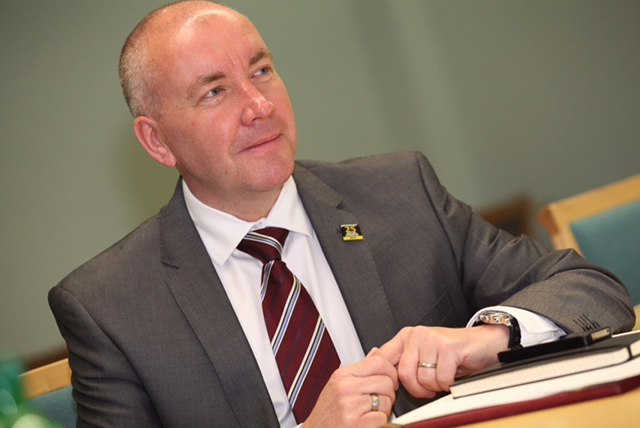Midcounties Co-operative Travel is preparing for the launch next January of a business serving corporate customers.
Co-op Travel Management, which offers a single portal where clients can book transport and accommodation – including from their phone – will operate as a subsidiary of the travel business at Midcounties, the largest independent consumer co-op in the UK.
Alistair Rowland, Midcounties’ group general manager – specialist retail, says the move brings the society closer to filling a gap left by the loss of the Co-op Group’s travel division. The Group created a joint venture for its travel outfit with Thomas Cook in 2011, before pulling out last year, selling full control to Thomas Cook.
The venture, based at Midcounties’ Walsall head office, will be led by Mike Crotty, who was director of operations and business support at the Group’s travel business before the sale.

“Mike brings knowledge,” said Mr Rowland. “He knows the market very well, and he knows co-ops very well.
“He’s done a number of things since the Group – he has set up new ventures before so he’s perfectly placed to build from a zero start.”
Mr Rowland, who was director of distribution at the Group’s travel business until 2011, said he’s made it his “life’s work” to rebuild a co-operative travel business over the past five years.
“Midcounties decided to carry on running a travel business,” he added. “Many people from the Group moved to Midcounties rather than going with the Thomas Cook venture. We wanted to build up a co-operative travel business.”
Since then, the team has built Midcounties Co-op Travel from a £70m turnover to £400m.
“We’ve got that business in place,” said Mr Rowland, “but the other successful leg at the Co-op Group was corporate travel management, which sold services to small and medium enterprises.”
The Group’s corporate travel division became part of the joint venture with Thomas Cook but was subsequently sold and rebranded as Clarity.
“It still has lots of the old management in place,” said Mr Rowland, “but what it lacks is the Co-op brand, which is really important for corporate travellers.”
He said he wanted to build the new business to match the old corporate travel offering from the Group. “It was a very successful business – it had 14 offices round the UK, £125m turnover, making £2m profits.
“Under the Group, it was called Co-operative Travel Management. The new business under Midcounties is called Co-op Travel Management.”

The ethical values of a co-op business are more relevant than before, he said. “The corporate market’s changed. Customers want corporate social responsibility covered – how many CO2s are they burning off, how efficient is their travel?
“Another element is quality management. Through the portal, corporates can control what all their operatives do. For example, they can set a hotel price cap in London to control costs.”
Mr Rowland said the ambition was always to open a corporate travel arm but “we’ve just been too busy. When you’re trying to rebuild a travel group, you have to have a strong base of leisure travel to work from. You have to get that sorted.”
Related: Thomas Cook takes over The Co-operative Travel joint venture outlets
In terms of costs and fees, Co-op Travel Management will offer a “fully transparent service”, he added. “Customers will know exactly what they’re paying for.
“The corporate market has had a few years of consolidation, with big players buying up smaller ones, so you end up with operators like American Express contracting £1bn a year, but not many players in middle ground.
“That’s left a need in the market, with unhappy customers who’ve found their service transferred through consolidation.
“And one thing big companies are not good at – that the old Co-op Travel business did well – is the public sector, which can be difficult. For instance, if a doctor wants to travel, the business travel company needs to offer three separate quotes. Big companies don’t want to do it, it’s cumbersome – but we will be very good at it.”
The venture also benefits from a lack of legacy problems over IT development.
“Technology has improved hugely in last two years. Where big corporations would have spent millions trying to develop things as obvious as a single sign-on for a user, that technology is now available.
“Tech and travel is pretty grim but with the apps now available we’ll be using working technology pretty much off the shelf, and what we offer will look good.”
He added: “There’s not a lot of new players in the market, and we have knowledge of the market. And because we don’t have to work on our tech, we can work on building the customer base.
“You don’t need to be too clever – you just need to be offering the best service.”

